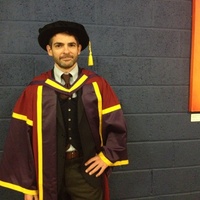
Kozo Mayumi
Kozo Mayumi graduated from the Graduate School of Engineering at the Department of Applied Mathematics and Physics of Kyoto University. Between 1984 and 1988 he studied bioeconomics at Department of Economics of Vanderbilt University under Prof. Nicholas Georgescu-Roegen’s supervision. Since then, Mayumi has been working with Prof. Mario Giampietro in the field of energy analysis, ecological economics and complex hierarchy theory. Jointly with Prof. Giampietro, Mayumi created a new scheme of energy accounting, called MuSIASEM (Multi-Scale Integrated Analysis of Societal and Ecosystem Metabolism) around 1997: see https://en.wikipedia.org/wiki/MuSIASEM. Meanwhile together with Dr. Mario Giampietro and other three researchers, Mayumi started a biennial international workshop (Advances in Energy Studies) starting 1998 in which many distinguished scholars in the field of energy analysis took part. After having retired from Tokushima University at the end of March 2020, he started working at the Kyoto College of Graduate Studies for Informatics as Professor. Mayumi is currently an editorial board member of journals, such as Ecological Economics, International Journal of Ecological Economics and Statistics, and Ecosystem Services. His works include the following books:
(1) The Origins of Ecological Economics: The Bioeconomics of Georgescu-Roegen. London: Routledge, 2001; (2) The Jevons Paradox and the Myth of Resource Efficiency Improvements, The Earthscan, 2007 (with John Polimeni, Mario Giampietro and Blake Alcott); (3) The Biofuel Delusion: The Fallacy of Large Scale Agro-Biofuel Production, The Earthscan, 2009 (with Mario Giampietro);(4) The Metabolic Pattern of Societies: Where Economists Fall Short, Roultedge, 2012 (with Mario Giampietro and Alev Sorman); (5) Energy Analysis for a Sustainable Future: Multi-Scale Integrated Analysis of Societal and Ecosystem Metabolism, Routledge, 2013 (with Mario Giampietro and Alev Sorman); (6) Sustainable Energy and Economics in an Aging Population: Lessons from Japan, Springer (Lecture Note in Energy 76); and (7) Reconsidering the Privileged Powers of Banks: Foundations of Sovereign Money, Wealth and Real Capital for Sustainability, Palgrave Macmillan, 2023 (with Ansel Renner).
Jointly with Mark Glucina, Mayumi is currently writing a book, Hydrogen Energy in a Sustainable Future: Phantom or Panacea?, to be published by CRC Press in 2025.
Mayumi is the first recipient of Georgescu-Roegen Awards (Unconventional Thinking Category) at the 13th Delhi Sustainable Development Summit in 2013.
(1) The Origins of Ecological Economics: The Bioeconomics of Georgescu-Roegen. London: Routledge, 2001; (2) The Jevons Paradox and the Myth of Resource Efficiency Improvements, The Earthscan, 2007 (with John Polimeni, Mario Giampietro and Blake Alcott); (3) The Biofuel Delusion: The Fallacy of Large Scale Agro-Biofuel Production, The Earthscan, 2009 (with Mario Giampietro);(4) The Metabolic Pattern of Societies: Where Economists Fall Short, Roultedge, 2012 (with Mario Giampietro and Alev Sorman); (5) Energy Analysis for a Sustainable Future: Multi-Scale Integrated Analysis of Societal and Ecosystem Metabolism, Routledge, 2013 (with Mario Giampietro and Alev Sorman); (6) Sustainable Energy and Economics in an Aging Population: Lessons from Japan, Springer (Lecture Note in Energy 76); and (7) Reconsidering the Privileged Powers of Banks: Foundations of Sovereign Money, Wealth and Real Capital for Sustainability, Palgrave Macmillan, 2023 (with Ansel Renner).
Jointly with Mark Glucina, Mayumi is currently writing a book, Hydrogen Energy in a Sustainable Future: Phantom or Panacea?, to be published by CRC Press in 2025.
Mayumi is the first recipient of Georgescu-Roegen Awards (Unconventional Thinking Category) at the 13th Delhi Sustainable Development Summit in 2013.
less
Related Authors
Matthew Eagleton-Pierce
SOAS University of London
Sally Haslanger
Massachusetts Institute of Technology (MIT)
John Barry
Queen's University Belfast
Vincenzo Bavoso
The University of Manchester
David Seamon
Kansas State University
Armando Marques-Guedes
UNL - New University of Lisbon
Stephen Yablo
Massachusetts Institute of Technology (MIT)
Martin O'Neill
University of York
Eros Carvalho
Universidade Federal do Rio Grande do Sul
Yannis Hamilakis
Brown University
InterestsView All (7)










Uploads
Videos by Kozo Mayumi
Books by Kozo Mayumi
with nuclear power generation plants, with a particular focus on the case of Japan.
These issues are critical components of any discussion on environmental sustainability.
social cost of carbon—to guide decisions concerning climate change mitigation and adaptation.
Reyer Gerlagh and Roweno Heijmans argue in support of calculating the social cost of
carbon, claiming that it improves the effectiveness and efficiency of climate change decisionmaking
and that it also helps to reveal normative disagreements between different political
actors. They demonstrate a quick and simple way that the social cost of carbon can be calculated
to reflect these disagreements. Kozo Mayumi takes a more critical stance to the whole
field of cost-benefit analysis—within which the social cost of carbon sits—claiming that the
nature and consequences of climate change undermine three key tenets of conventional economics:
scarcity, substitution and discounting. For him, climate change is a ‘wicked problem’
which requires political deliberation and ethical judgement, rather than economic calculation.
In turn, it examines the accessibility of global fossil fuels and feasibility of large-scale solar energy use. A new theory of money, interest, and capital is put forward, together with a proposal for an alternative system of international monetary cooperation, to promote a more sustainable and equitable world. Specific topics discussed include
• the inverted population pyramid, due to the dramatic change in human life spans and declining birth rates;
• the rapidly shrinking workforce, aging population, and declining GDP share sourced from industry;
• disproportionate debt expansion due to public bond issues and coping with a persistent budget deficit;
• the potential collapse of social security systems combined with income inequality; and
• how to mitigate these bio-economic predicaments.
The book includes detailed examinations of the following subjects:
1. Reformulating the consumer choice theory for environmental valuation.
2. Investigation on a Leontief dynamic model with two delays.
3. Measure of information and its relationship with entropy in physics.
4. Relations among energy analysis, Sraffa’s analysis and Georgescu-Roegen’s
production model.
5. The viability of solar technology.
6. Economic and thermodynamic analysis of land since the Industrial Revolution.
7. Development, environmental degradation and North–South trade issues.
8. Robert Rosen’s modelling relation and the biophysical approach to sustainability issues.
Papers by Kozo Mayumi
with nuclear power generation plants, with a particular focus on the case of Japan.
These issues are critical components of any discussion on environmental sustainability.
social cost of carbon—to guide decisions concerning climate change mitigation and adaptation.
Reyer Gerlagh and Roweno Heijmans argue in support of calculating the social cost of
carbon, claiming that it improves the effectiveness and efficiency of climate change decisionmaking
and that it also helps to reveal normative disagreements between different political
actors. They demonstrate a quick and simple way that the social cost of carbon can be calculated
to reflect these disagreements. Kozo Mayumi takes a more critical stance to the whole
field of cost-benefit analysis—within which the social cost of carbon sits—claiming that the
nature and consequences of climate change undermine three key tenets of conventional economics:
scarcity, substitution and discounting. For him, climate change is a ‘wicked problem’
which requires political deliberation and ethical judgement, rather than economic calculation.
In turn, it examines the accessibility of global fossil fuels and feasibility of large-scale solar energy use. A new theory of money, interest, and capital is put forward, together with a proposal for an alternative system of international monetary cooperation, to promote a more sustainable and equitable world. Specific topics discussed include
• the inverted population pyramid, due to the dramatic change in human life spans and declining birth rates;
• the rapidly shrinking workforce, aging population, and declining GDP share sourced from industry;
• disproportionate debt expansion due to public bond issues and coping with a persistent budget deficit;
• the potential collapse of social security systems combined with income inequality; and
• how to mitigate these bio-economic predicaments.
The book includes detailed examinations of the following subjects:
1. Reformulating the consumer choice theory for environmental valuation.
2. Investigation on a Leontief dynamic model with two delays.
3. Measure of information and its relationship with entropy in physics.
4. Relations among energy analysis, Sraffa’s analysis and Georgescu-Roegen’s
production model.
5. The viability of solar technology.
6. Economic and thermodynamic analysis of land since the Industrial Revolution.
7. Development, environmental degradation and North–South trade issues.
8. Robert Rosen’s modelling relation and the biophysical approach to sustainability issues.
for Ecological Economics Seminar on October 13, 2023.
The readers can visit the following YouTube site:
https://www.youtube.com/watch?v=WVh08i3-pdI
On the contrary, our theoretical, historical and institutional analysis of the dual nature of money, capital and wealth reveals that there are indeed deep and strong connections between monetary phenomena and biophysical aspects of our socioeconomic systems and the biosphere. These connections have unfortunately been nearly completely overlooked in the analysis of the role of money.
This book is concerned mainly with three types of dual nature associated with money, real capital and wealth. The book opens doors to understanding an essential point of sustainability issues: money, real capital and wealth are affluence from individualistic perspectives but irrevocable biophysical debt from collective perspectives. Individualistic perspectives have become, in modern times, second nature to the human species, preventing us from paying proper attention to collective perspectives otherwise indispensable for establishing a more sustainable and more equitable world. In other words, individualistic perspectives have blocked us from engaging in a meaningful process of responsible development. The vast majority of people seem not to note the existence of the three types of dual nature we list—profound implications for sustainability issues result. This book attempts to engage with said “vast majority”, so as to illuminate for them a path that enables a renouncing of their faith in the non-existence of a dual nature. Renouncing a strong faith in individualistic perspectives is a prerequisite to collective action towards responsible development.